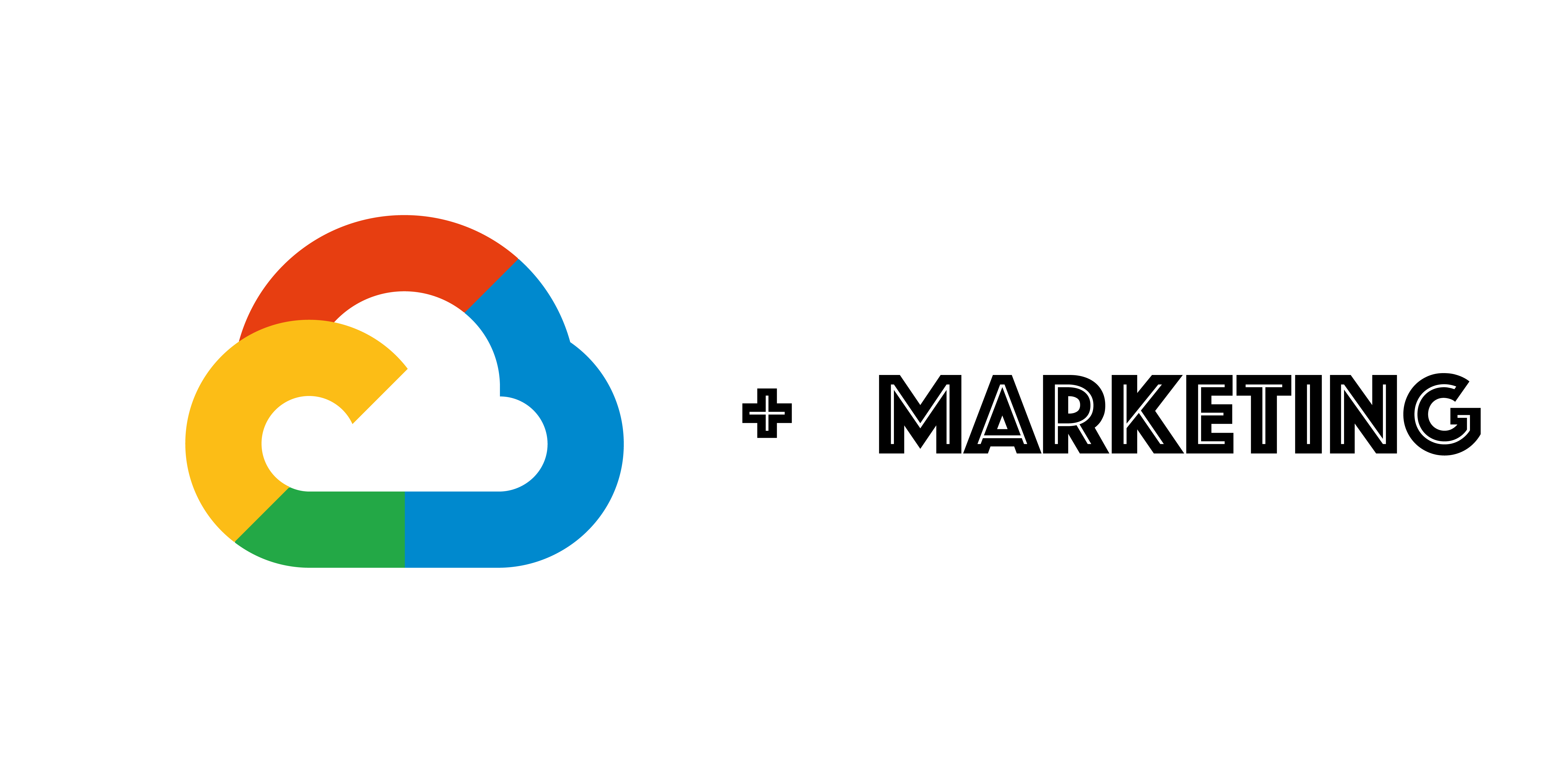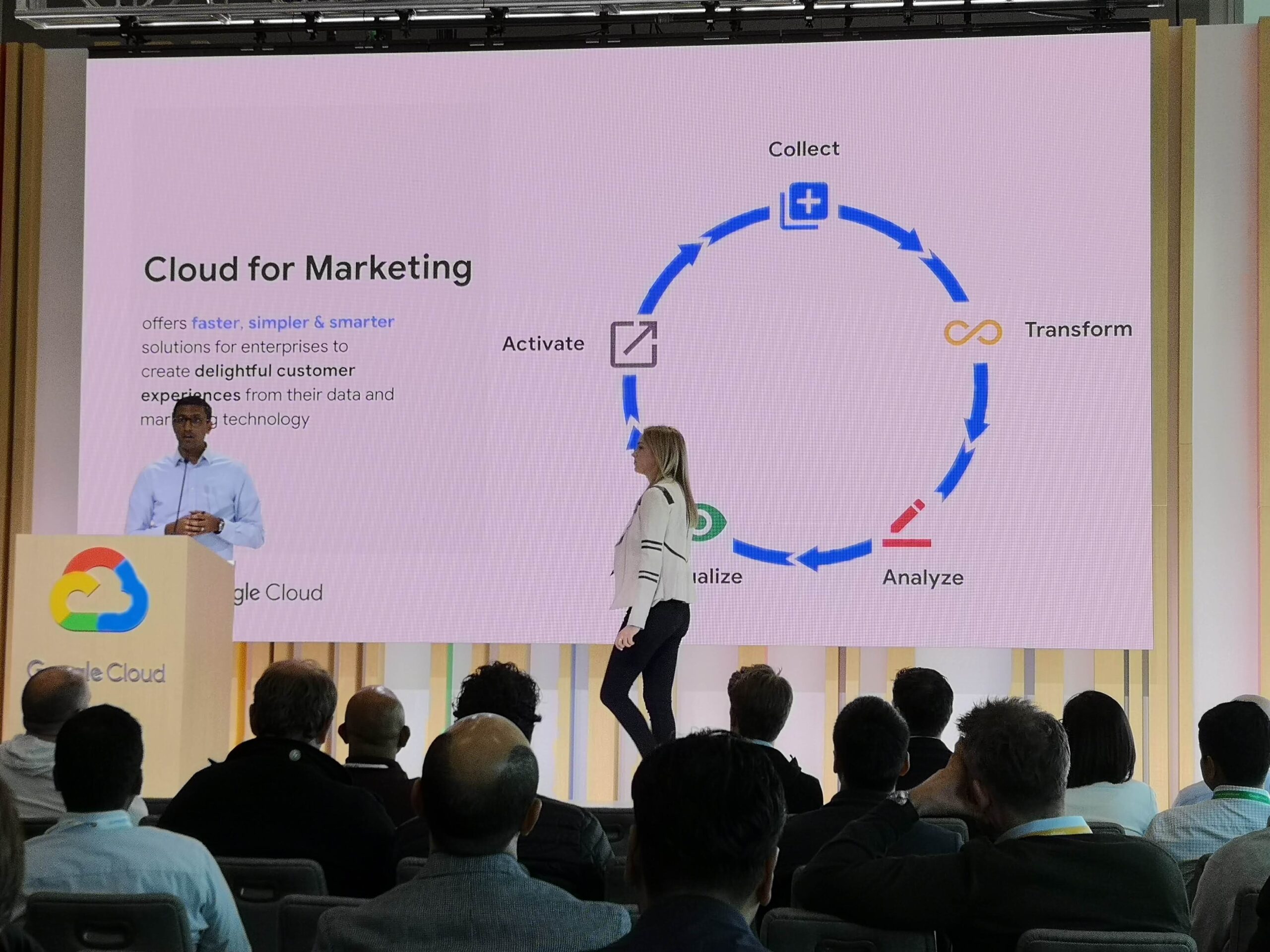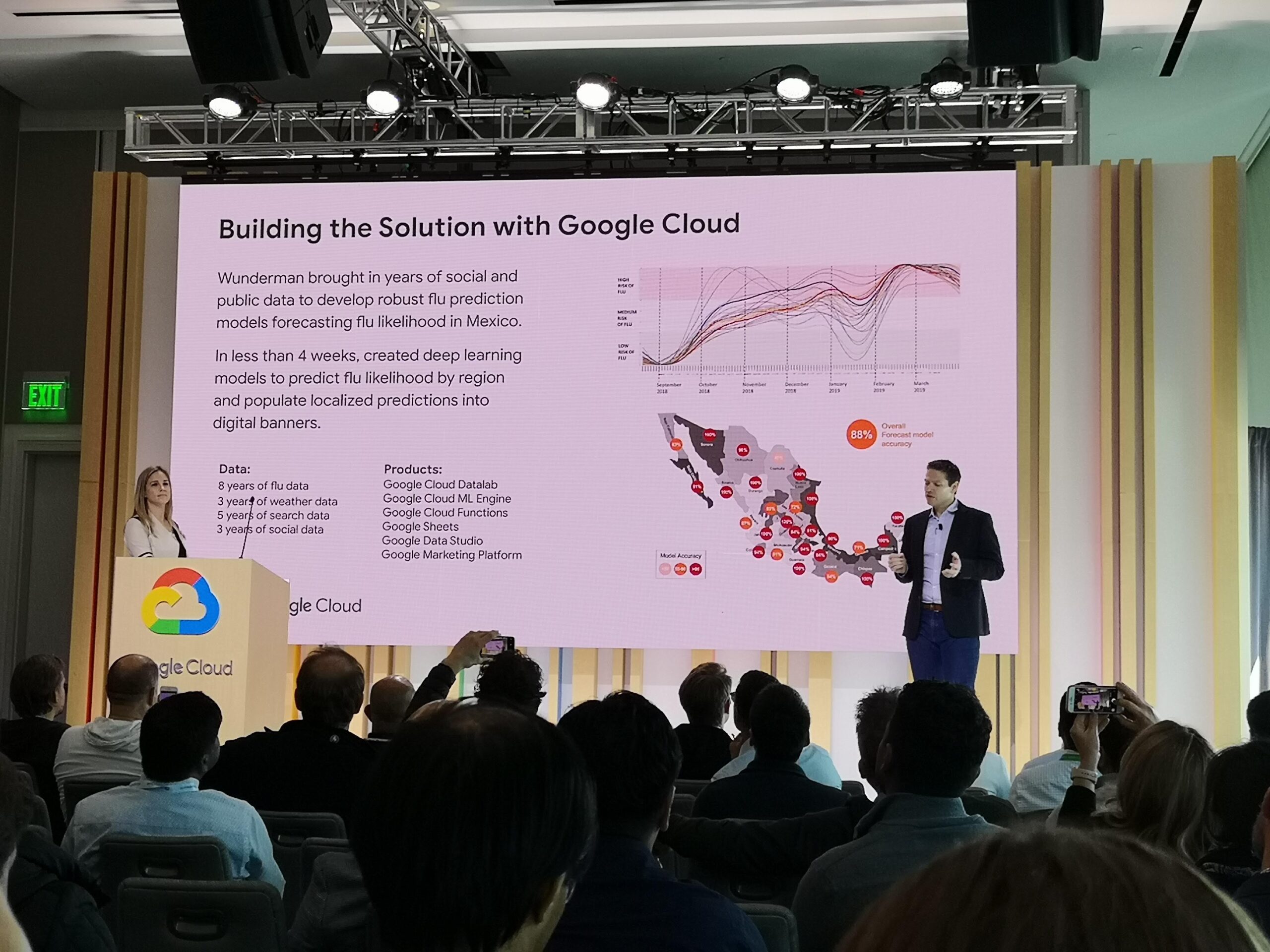 Cloud for Marketing, Cloud Marketing, Marketing Cloud… What’s in a name? The concepts of Cloud and marketing are coming more & more together and are reinforcing each other. That’s because there is an increasing need for businesses to deliver more personalised customer experiences and improve marketing ROI. But being a new kid on the marketing block, not all CMO’s and marketeers know the potential of the golden combination of (Google) Cloud and marketing. So: what is Cloud for Marketing? And what value can it bring to your marketing department and business alike?
Cloud for Marketing, Cloud Marketing, Marketing Cloud… What’s in a name? The concepts of Cloud and marketing are coming more & more together and are reinforcing each other. That’s because there is an increasing need for businesses to deliver more personalised customer experiences and improve marketing ROI. But being a new kid on the marketing block, not all CMO’s and marketeers know the potential of the golden combination of (Google) Cloud and marketing. So: what is Cloud for Marketing? And what value can it bring to your marketing department and business alike?
In this post, I’ll try to give you a broad idea of what Cloud for Marketing with Google is and why it matters for your business and marketing strategy. And I’ll include some fresh insights I gained at Google Next ’19 in San Francisco from Googlers and businesses that are already using Cloud for Marketing.
Let’s start with an example of a common marketing problem these days, one that can be solved with Cloud for Marketing solutions.
A Cloud for Marketing use case

Meet David. It’s a sunny weekend in spring, and David considers buying a barbecue to make his garden summer-proof. He looks at an ad in a local magazine and sees that his favourite retailer has a 25% spring discount on barbecues. David compares the prices online and can’t find any better price for this barbecue, so he goes ahead and drives to the nearest physical store of the retailer and buys the barbecue. The first barbecue dinner of the year is a success, and David is a happy customer.
But then few days after… the weather changes suddenly. It’s becoming colder and greyer again with rain showers almost every day. David starts considering buying a protective cover for his brand new barbecue to protect it from this bad weather.
What the retailer ideally would do once the weather changes, is suggesting David to buy protection accessories for his barbecue. But it doesn’t. Worse, the next time David opens his email inbox, he sees a marketing email from the same retailer, sending him a promotion for the same barbecue he already bought, but with a significant extra discount.
Customer loyalty & Data silos

Needless to say there is a huge (up)selling opportunity that gets lost here, as the retailer fails to meet the customer’s need for the right accessories for the product he already bought. But what’s worse, it also creates serious frustration with the customer who now feels stupid to have bought the barbecue ‘too early’. This frustration could harm the brand image and make loyal customers turn away to other retailers who do meet their needs and ‘understand’ them better.
The problem here is essentially one of data silos. The retailer knew that its customer bought a product from them through a loyalty program card and knew the weather conditions changed through public data. Still, because all this data was in different places, the seller failed at getting the right insights into its customer and thus failed to act upon it.
Cloud for Marketing to the rescue

Let’s take the same use case, but add a Cloud for Marketing flavour to it. This time the retailer where David buys his barbecue has all its data integrated in a raw format in a data lake. Based on its customer data combined with open data like the weather predictions, this retailer is able to get advanced insights and to activate the right data.
It sends David a personalised email and display advertising with recommendations for the appropriate accessories for his barbecue to get protected from rain and wind. The new promotion with extra discounts for barbecues only goes to customers who didn’t buy a barbecue yet. David is and stays a happy customer, knowing that his favourite retailer knows exactly what he wants, when he wants it.
Helping you at every step of your data journey
So what is Cloud for Marketing? It is a set of technologies that offers faster, simpler and smarter solutions for enterprises to create delightful customer experiences from their data and marketing technology.
Cloud for Marketing often comes in the shape of real-time targeted advertising and marketing content based on customer behaviour, feedback or competitor moves. But it’s not limited to that.

With its integrated toolkit of technologies, Cloud for Marketing avoids you having to draw up loads of different products. Its technology enables you to get the most out of your data at every level of your business’ data journey:
- Collect: gather your data with ease
- Transform: transform your data with powerful clean-up tools
- Analyse: run analyses in seconds without needing to setup a server
- Visualise: make your data useful by making it visible with beautiful dashboards
- Activate: get insights into your data to drive better results. This means you can manage your data lifecycle seamlessly, avoiding the need to cobble together a bunch of different products.
Now let’s take a closer look at how exactly Cloud for Marketing can benefit your business.
Impressive business results
Thinking about the example of consumer David, no wonder that businesses who implement Cloud for Marketing solutions are reporting impressive results of their marketing efforts, compared to their non-personalised (enough) way of doing marketing before.
Prediction use case

At Google Next ’19, one of the most impressive results of this personalised customer experience approach for me came from marketing agency Wunderman Thompson. A representative of Wunderman explained a use case of Cloud for Marketing it implemented for one of its clients.
They used integrated data from the client in combination with years of social and public data to develop robust flu prediction models and forecast the flu likelihood in Mexico on a daily basis. Mexicans can now access these daily flu predictions for their specific location on a dedicated website.
When there is a low flu risk, they get redirected to the brand website, with an increase in website visits as a result. When there is a middle to high risk, people get redirected to the e-retailer website where they can buy appropriate medical products to protect themselves for the illness.
Results that drive e-commerce revenue
After letting the powerful Google Cloud machine learning technologies develop deep learning prediction models for less than 4 weeks, running a digital promotion campaign redirecting to the dedicated website, the results were astonishing:
- 97% accuracy in predictions when and where flu cases would occur
- 200% increase in e-commerce sales
- 40 000 increase in leads per month generated, impacting the YoY sales tremendously
Giving customers what they want

As our barbecue example in the beginning of this post already hints, customer behaviour and expectations are changing. These days, consumers expect personalisation and a unified experience across multiple channels from brands. Consumer research also shows this trend.
Here are some interesting research statistics about these changes:
- 63% of people expect brands to use their purchase history to provide them with personalised experiences (Google/Greenberg research).
- 62% of people expect brands to deliver a consistent experience every time they interact with a brand while 58% thinks most brands currently don’t (Google/Greenberg research).
- 84% of customers say being treated like a person, not a number, is very important to winning their business (Salesforce research).
- 70% of customers say understanding how they use products and services is very important to winning their business (Salesforce research).
- 59% of customers say tailored engagement based on past interactions is very important to winning their business (Salesforce research).
- Customers are 2.1x more likely to view personalised offers as important versus unimportant (Salesforce research).
Undeniably, businesses who want to grow and drive more revenue have to listen to their customers and approach them with personalised marketing, true data-driven marketing that unites data silos and leverages data. That becomes possible with Cloud for Marketing.
So as a recap: what is Cloud for Marketing? In short, we could say that Cloud for Marketing is a set of technologies that can help you to dig into the gold mine of your organisation’s data. It often comes in the shape of real-time targeted advertising and marketing content based on customer behaviour, feedback or competitor moves. Cloud for Marketing adds the super powers of Google Cloud to your existing data, marketing and analytics efforts with as a goal to elevate your customers experience. And in the end, to increase the ROI of your marketing investments and your business revenue – drastically.
Hungry for more? Questions? Join our Cloud for Marketing event in Brussels on Tuesday 14th of May 2019!
